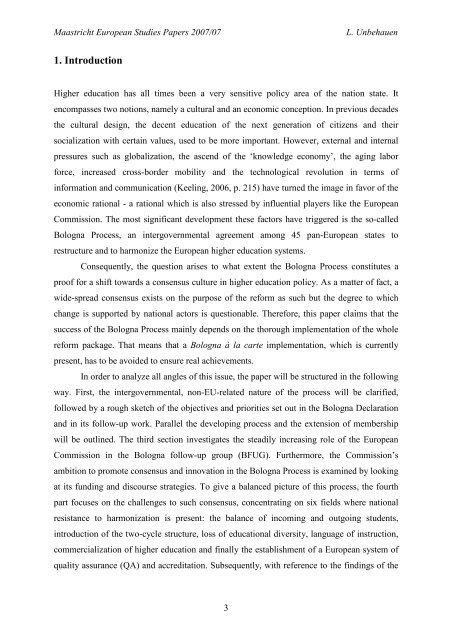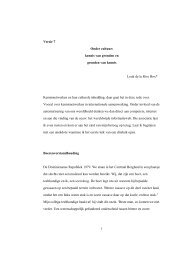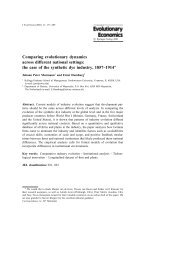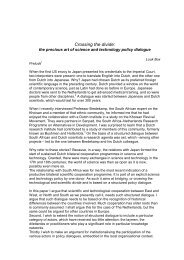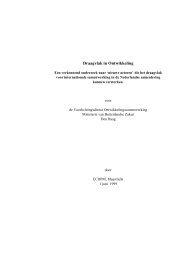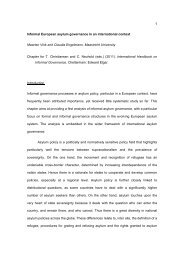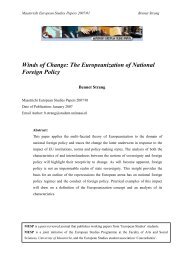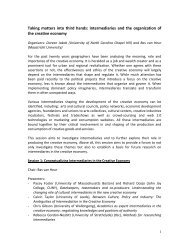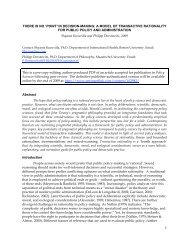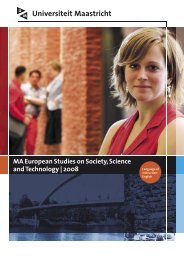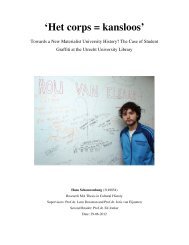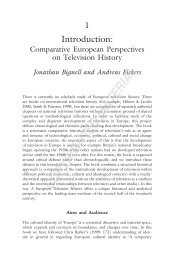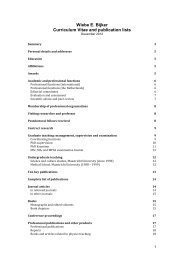Download paper - Maastricht University
Download paper - Maastricht University
Download paper - Maastricht University
Create successful ePaper yourself
Turn your PDF publications into a flip-book with our unique Google optimized e-Paper software.
<strong>Maastricht</strong> European Studies Papers 2007/07 L. Unbehauen<br />
1. Introduction<br />
Higher education has all times been a very sensitive policy area of the nation state. It<br />
encompasses two notions, namely a cultural and an economic conception. In previous decades<br />
the cultural design, the decent education of the next generation of citizens and their<br />
socialization with certain values, used to be more important. However, external and internal<br />
pressures such as globalization, the ascend of the ‘knowledge economy’, the aging labor<br />
force, increased cross-border mobility and the technological revolution in terms of<br />
information and communication (Keeling, 2006, p. 215) have turned the image in favor of the<br />
economic rational - a rational which is also stressed by influential players like the European<br />
Commission. The most significant development these factors have triggered is the so-called<br />
Bologna Process, an intergovernmental agreement among 45 pan-European states to<br />
restructure and to harmonize the European higher education systems.<br />
Consequently, the question arises to what extent the Bologna Process constitutes a<br />
proof for a shift towards a consensus culture in higher education policy. As a matter of fact, a<br />
wide-spread consensus exists on the purpose of the reform as such but the degree to which<br />
change is supported by national actors is questionable. Therefore, this <strong>paper</strong> claims that the<br />
success of the Bologna Process mainly depends on the thorough implementation of the whole<br />
reform package. That means that a Bologna à la carte implementation, which is currently<br />
present, has to be avoided to ensure real achievements.<br />
In order to analyze all angles of this issue, the <strong>paper</strong> will be structured in the following<br />
way. First, the intergovernmental, non-EU-related nature of the process will be clarified,<br />
followed by a rough sketch of the objectives and priorities set out in the Bologna Declaration<br />
and in its follow-up work. Parallel the developing process and the extension of membership<br />
will be outlined. The third section investigates the steadily increasing role of the European<br />
Commission in the Bologna follow-up group (BFUG). Furthermore, the Commission’s<br />
ambition to promote consensus and innovation in the Bologna Process is examined by looking<br />
at its funding and discourse strategies. To give a balanced picture of this process, the fourth<br />
part focuses on the challenges to such consensus, concentrating on six fields where national<br />
resistance to harmonization is present: the balance of incoming and outgoing students,<br />
introduction of the two-cycle structure, loss of educational diversity, language of instruction,<br />
commercialization of higher education and finally the establishment of a European system of<br />
quality assurance (QA) and accreditation. Subsequently, with reference to the findings of the<br />
3


